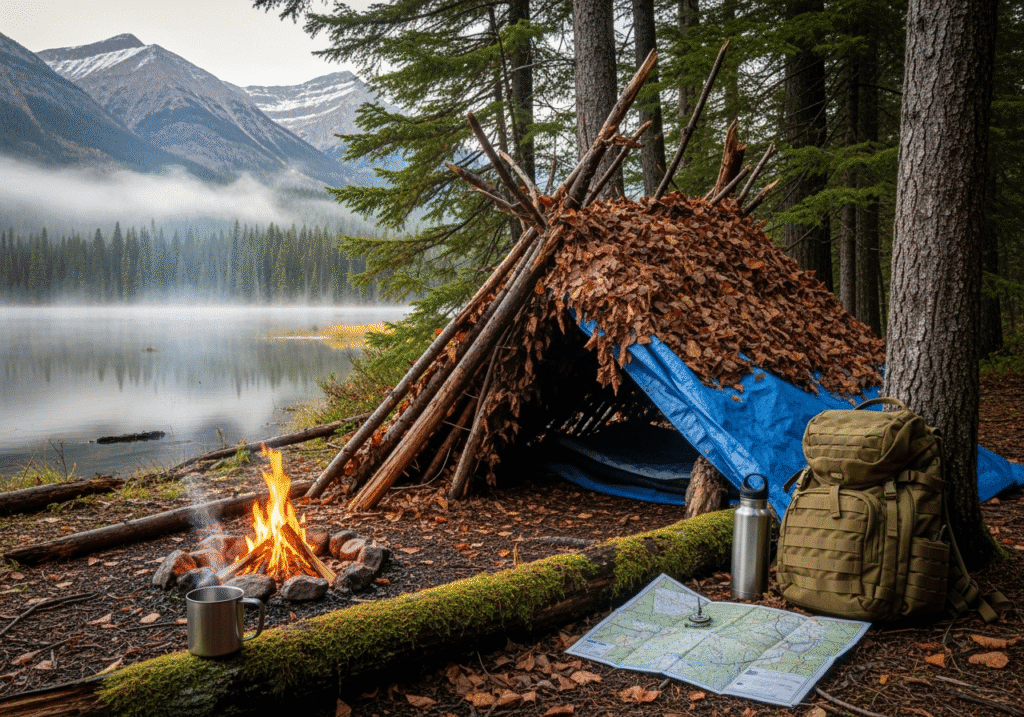
Canadian Wilderness Survival Skills: What Every Adventurer Needs to Know
Exploring Canada’s wild spaces is an incredible experience, but it also means being prepared for anything. Whether you’re hunting, fishing, hiking, or just enjoying the backcountry, knowing some basic survival skills can make the difference between an unforgettable adventure and a dangerous situation. Here’s a deep dive into the most important survival skills for anyone spending time in the Canadian outdoors.
Why Survival Skills Matter in Canada
Canada’s wilderness is vast—over 70% of our land is considered remote or sparsely populated. Weather can change in minutes, distances are deceiving, and cell service is often nonexistent. Even experienced outdoorspeople can find themselves in unexpected situations, so having a solid survival foundation is key.
Quick Facts:
- Canada has more lakes than any other country—over 2 million!
- The largest unbroken forest in the world, the boreal forest, stretches across much of Canada.
- Hypothermia can set in at temperatures as high as 10°C (50°F) if you’re wet and exposed to wind.
1. Building an Emergency Shelter
If you’re stranded or caught out overnight, shelter is your first priority. Exposure to wind, rain, or snow can be life-threatening.
Tips:
- Use natural materials like branches, leaves, and snow to insulate.
- Build your shelter away from hazards like falling branches (“widowmakers”) or flooding.
- Even in summer, nights can be cold—insulate the ground with pine boughs or dry leaves to prevent heat loss.
Fact:
A simple lean-to or debris hut can be built in under an hour and can raise your core temperature by several degrees.
2. Starting a Fire
Fire provides warmth, a way to purify water, cook food, and signal for help.
Skills to Practice:
- Carry waterproof matches, a lighter, and a fire steel as backups.
- Learn how to find dry tinder in wet conditions—birch bark, pine resin, and dry grass are great options.
- Practice building different types of fires: teepee, log cabin, and long fires for warmth.
Fact:
In Canada’s boreal forest, birch bark will light even when wet, making it a survivalist’s best friend.
3. Finding and Purifying Water
You can survive weeks without food, but only a few days without water. Dehydration is a real risk, even in cold weather.
Tips:
- Look for water in streams, lakes, or by collecting rain.
- Always purify water—boiling for 1–2 minutes kills most pathogens.
- In winter, melt snow or ice before drinking (never eat snow directly; it lowers your core temperature).
Fact:
Canada holds about 20% of the world’s fresh water, but much of it is in remote or inaccessible areas.
4. Navigation and Signaling
Getting lost happens more easily than you think, especially in dense forest or unfamiliar terrain.
Skills to Practice:
- Always carry a map and compass—and know how to use them.
- GPS devices are helpful but can fail in cold or remote areas.
- If lost, stay put and make yourself visible: use a whistle, bright clothing, or create large ground signals.
Fact:
Three blasts on a whistle is the universal signal for distress.
5. Basic First Aid
Injuries can happen fast—cuts, sprains, burns, and insect bites are common.
Tips:
- Carry a compact first aid kit with bandages, antiseptic, pain relievers, and blister pads.
- Learn how to treat hypothermia, heat exhaustion, and dehydration.
- Know how to use a tourniquet and splint a limb.
Fact:
In remote Canada, help can be hours or even days away. Basic first aid knowledge is a must-have skill.
6. Food: Foraging, Fishing, and Trapping
While you can go weeks without food, knowing how to find or catch it can boost morale and energy.
Tips:
- Learn to identify edible wild plants like berries, cattails, and dandelions (but beware of poisonous lookalikes).
- Carry basic fishing gear and know how to set simple snares or traps.
- If you’re hunting, always carry extra snacks—energy bars, nuts, and jerky are lightweight and calorie-dense.
Fact:
Many traditional Indigenous survival skills, like foraging and ice fishing, are still practiced across Canada today.
7. Staying Calm and Making a Plan
Perhaps the most important survival skill is mental. Panic wastes energy and clouds judgment.
Advice:
- Stop, breathe, and assess your situation.
- Make a plan: prioritize shelter, water, fire, and signaling.
- Stay positive—rescue is often closer than it seems.
Fact:
Studies show that a positive mental attitude is one of the strongest predictors of survival in emergency situations.
Extra Tips for Canadian Survival
- Dress in Layers: Weather can change fast. Wool and synthetic fabrics keep you warm even when wet.
- Leave a Trip Plan: Always tell someone where you’re going and when you’ll be back.
- Carry the Essentials: Knife, fire starter, emergency blanket, whistle, and water purification tablets should always be in your pack.
- Wildlife Awareness: Know how to avoid bears and other large animals. Make noise, store food away from camp, and carry bear spray where allowed.
Final Thoughts
Survival skills aren’t just for emergencies—they’re part of being a confident, prepared Canadian adventurer. Practice these basics, respect the land, and you’ll be ready for whatever the wild throws your way.
Want to gear up for your next trip? Check out our selection of thermal underwear and outdoor apparel—perfect for any adventure, any season.
Let me know if you want this broken down for social media, or if you’d like another topic covered!

